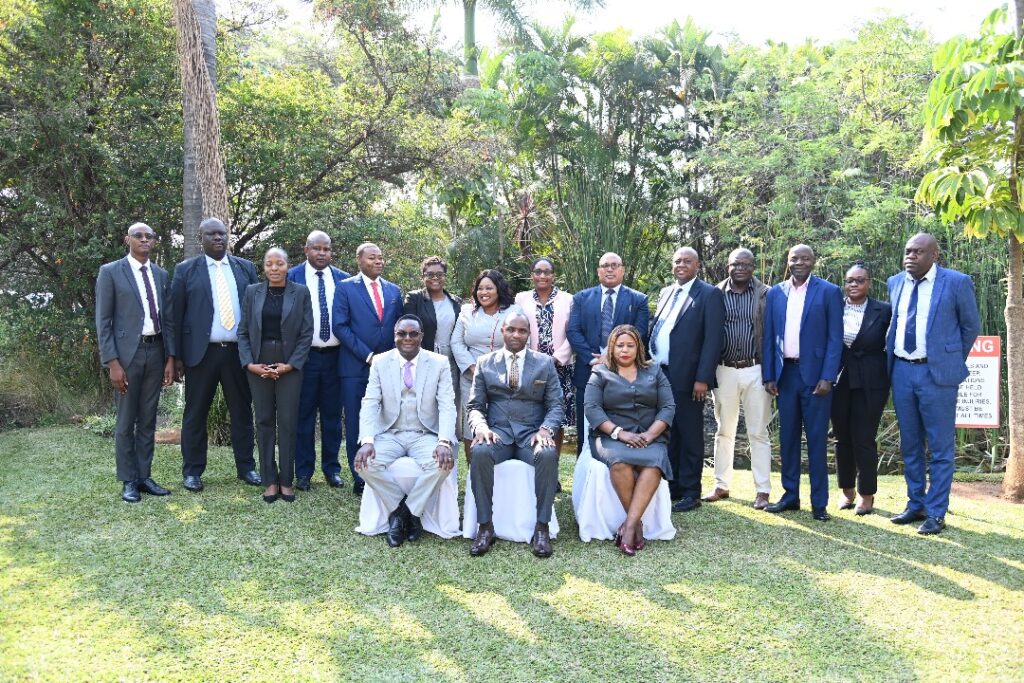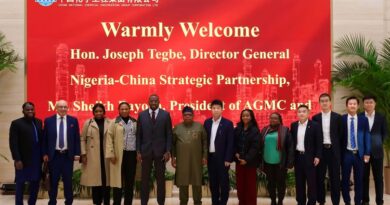Director General of Immigration, Japhet M. Lishomwa, Opens Law Review Internal Consultative Meeting
Dr. Japhet M. Lishomwa, the Director General of Immigration, officially inaugurated the Law Review Internal Consultative Meeting held from June 3rd to June 7th, 2024, at Sandy’s Creations Resort in Chilanga. The meeting aims to review the Immigration and Deportation Act No. 18 of 2010.
In his opening address, Dr. Lishomwa expressed gratitude to the Ministry of Justice for their participation and legal guidance in this important exercise.
He emphasized the importance of ensuring that the application of immigration laws is non-discriminatory and fair, while upholding the human rights of clients.
“As a law enforcement agency, our role is to ensure a non-discriminatory and fair application of the law while upholding human rights of our clients,” Dr. Lishomwa stated.
He highlighted the need for a thorough review process, providing an opportunity for all internal stakeholders to develop a contemporary law that meets the needs of both law enforcement officers and clients.
Dr. Lishomwa acknowledged the importance of addressing contentious issues that have arisen due to the lack of a robust legal framework.
He praised the expertise and knowledge of the senior officials and experts attending the meeting, expressing confidence in their ability to lead the law review process successfully.
The Director General urged participants to adopt best practices from within and outside the country, including those from regional economic groupings.
“Certain permits, procedures, and practices that would benefit our clients need to be considered. By doing so, we will develop a law that is comprehensive, gender-responsive, and also responsive to contemporary matters,” he said.
Dr. Lishomwa emphasized the dynamic nature of migration and the necessity of good laws and best practices in migration management.
He called for minimizing barriers to regular migration, noting that these barriers contribute significantly to irregular migration.
He stressed the importance of promoting regional integration by facilitating both short-term and long-term migration.
Highlighting migration as a key contributor to development, Dr. Lishomwa encouraged the participants to consider various aspects of migration, including governance, the environment, data and research, migrant rights, and vulnerable groups such as women, children, adolescents, youths, and older persons.
He also addressed global security threats, such as transnational organized crimes, including human trafficking, smuggling, financing of terrorism, drug trafficking, money laundering, corruption, child trafficking, child pornography, and cybercrimes. He affirmed the Zambian government’s commitment to tackling these issues.
Dr. Lishomwa expressed hope that the consultative process would address pertinent issues benefiting all stakeholders. He urged participants to be candid in their deliberations and to consider the valuable input received from provincial consultative meetings thoroughly.
In conclusion, Dr. Lishomwa encouraged active participation from all attendees to produce a comprehensive and effective legal framework. He thanked everyone for their attendance, despite the short notice, and officially declared the meeting open.
“I thank you all for your response to the invitation, though at short notice, and I request your active participation. I now declare this meeting officially open,” Dr. Lishomwa concluded.
The Law Review Internal Consultative Meeting will continue over the next five days, with stakeholders working collaboratively to develop a law that addresses the current needs and challenges in immigration and deportation.



